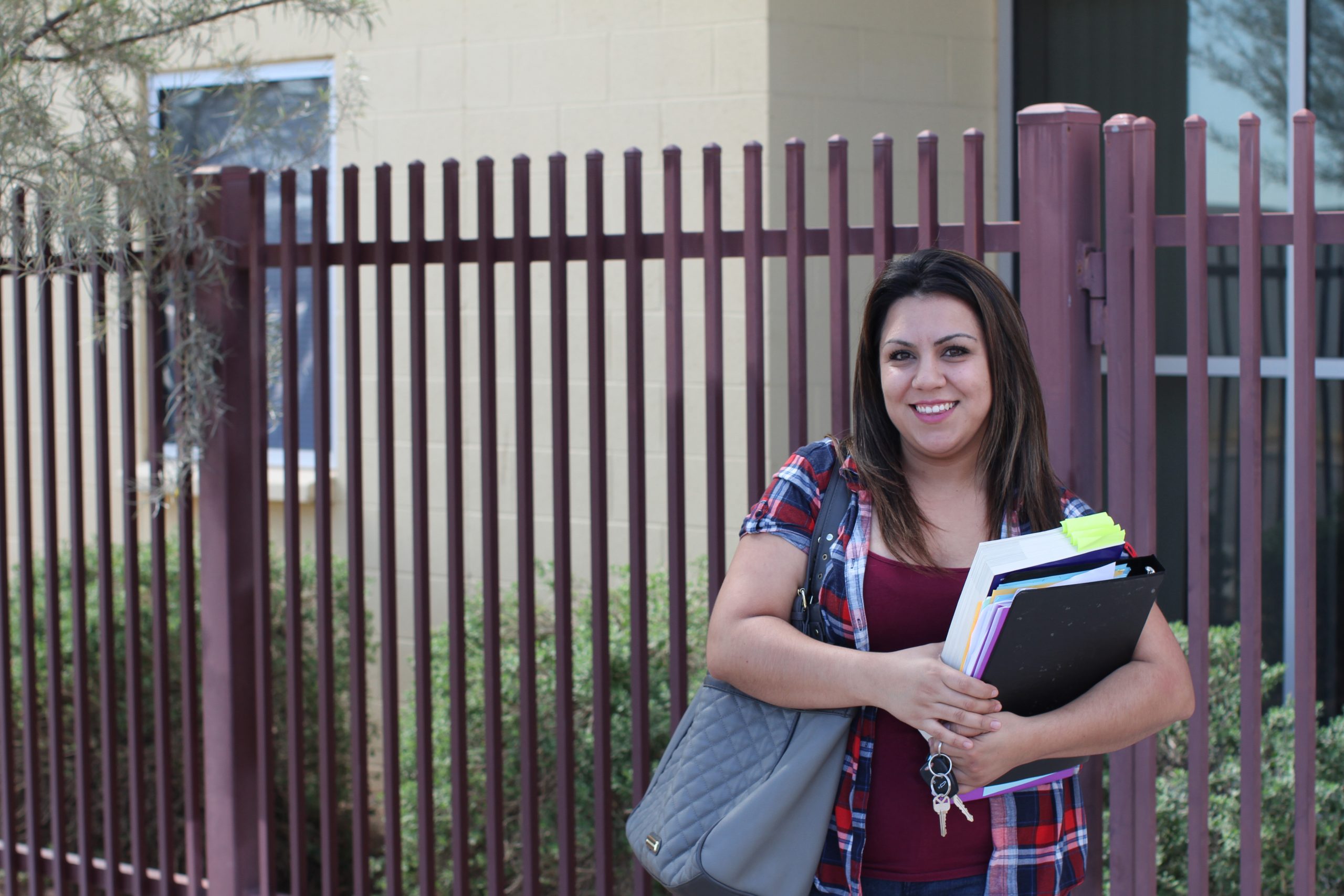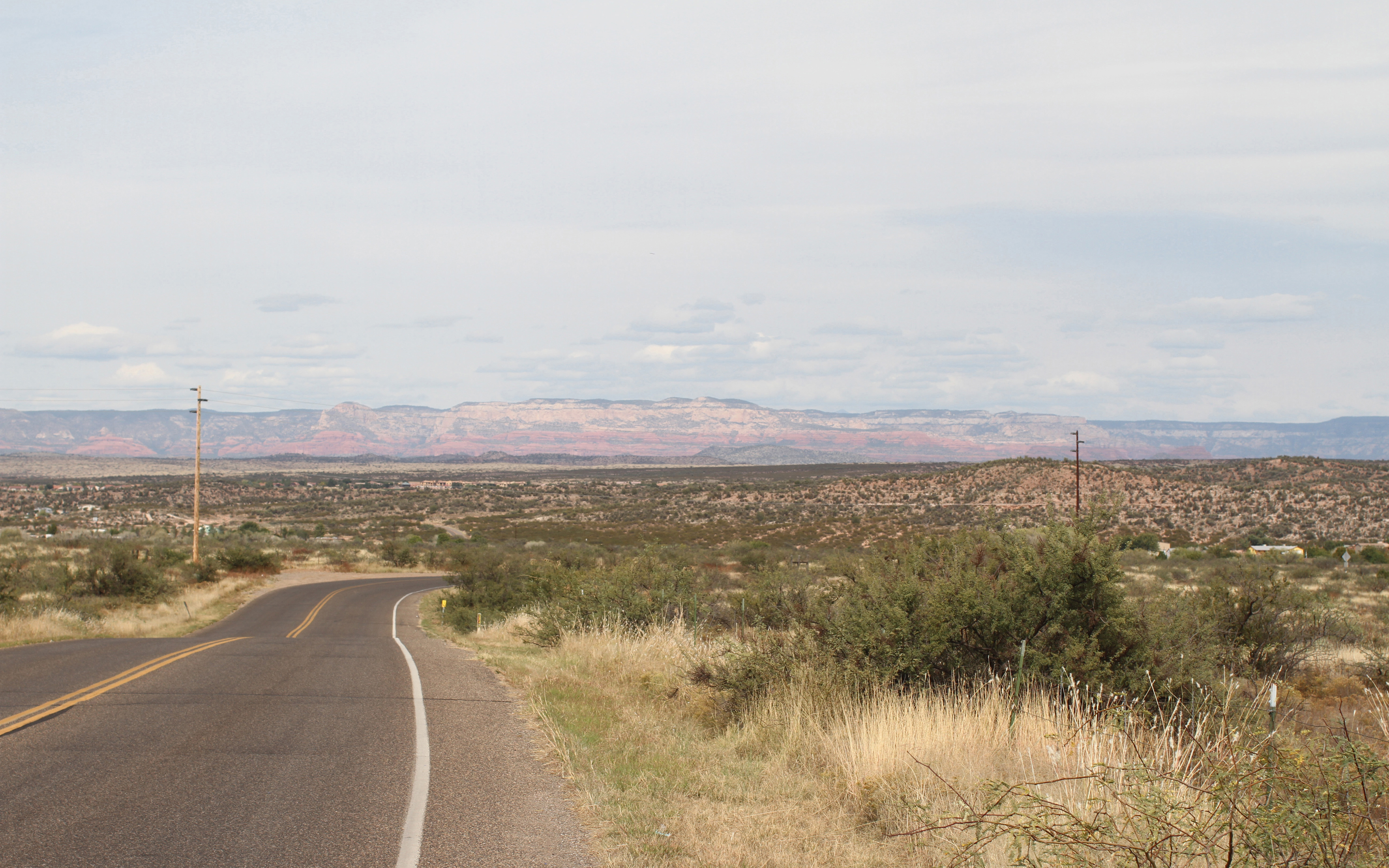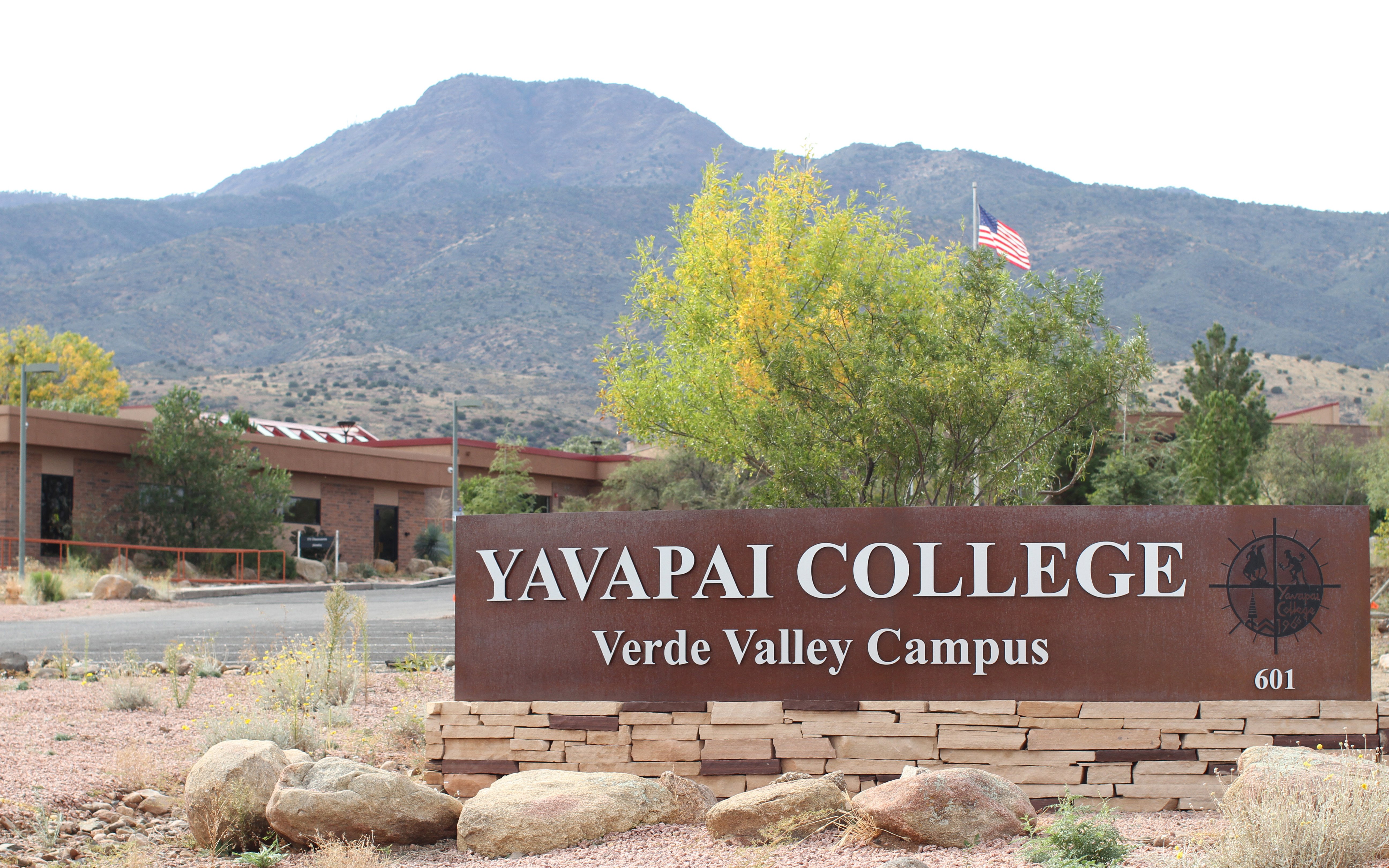
Zahide Betancourt, 28, holds her textbooks in front of Wilson Community Center in Phoenix, where she takes a GED prep course. (Photo by Cassie Ronda/PIN Bureau)
COTTONWOOD — Zahide Betancourt wakes up at 5 a.m. every Friday to get ready for her weekly GED prep class.
The 28-year-old mother of three meets up with a fellow classmate, who happens to be an old friend from middle school, and the two women grab their workbooks, makeup bags and cups of coffee before hitting the road.
Their teacher won’t start lecturing until 8:30 a.m., but Betancourt and her friend, both Mexican nationals, need a head start. The two women live in Cottonwood, and their classroom is at the Wilson Community Center in Phoenix, 100 miles away.
The 200-mile round trip just to study for a GED certificate stems from the fact that state law prevents Betancourt, an undocumented immigrant, from attending state-funded adult education programs. But a program offered through the Mexican Consulate in Phoenix allows undocumented immigrants to attend prep classes for Mexican nationals seeking a high school equivalency credential.
Betancourt was 14 the last time she was in school. During her freshman year at Sedona Red Rock High School, she became pregnant with her first son. She spent the next 14 years working to support her young family.
“It (was) either feed my kids or go to school,” she said.
Now that Betancourt can afford to continue her education, she jumped at the opportunity when it arrived. A friend in Cottonwood mentioned she had recently earned her high school credential after taking the GED prep course at Wilson.
“I just asked her, ‘How much is it? Let’s do it!'” Betancourt said.
The enthusiasm stemmed from a desire to apply for better jobs and help her kids more with their homework, “instead of going, ‘Uh-oh, we need to get some help,'” she said. Her next goal would be to train as a medical assistant or nurse, since she has several relatives who are doctors.
Even with these dreams in mind, Betancourt vividly remembers the nervousness she felt before returning to the classroom this fall.
“My hands were sweating. I was like ‘Oh god, here I am again,'” she said. “But it will be worth it.”

One hundred miles of road separate Cottonwood from South Phoenix. (Photo by Cassie Ronda/PIN Bureau)
This is the fourth year Wilson Community Center has offered GED preparation classes in Spanish, as part of the Plaza Comunitaria program. Created under the direction of former Mexican President Vicente Fox in 2001, the Mexican government program enables Mexican consulates to partner with U.S. schools, libraries and community centers to offer a range of educational curricula for Mexican nationals. According to representatives from the Mexican consulate in Phoenix, there are nine locations in the state of Arizona that serve as Plazas Comunitarias. Many offer elementary and high school level courses in addition to GED prep classes.
Blue points designate the nine plazas Comunitarias in Arizona, according to the Mexican Consulate in Phoenix. Take a look at her route and click on each point for photos or other information.
At Wilson Community Center, the GED prep teacher lectures in Spanish, and courses can be completed in as little as one semester. Students pay a flat fee of $150 for the semester to cover the teacher’s wages, and the consulate provides the textbooks. The consulate also pays for the four subject tests students must pass to earn a high school credential.
Editor’s note:
The headline on a previous version of this story gave the wrong home city for Zahide Betancourt. She lives in Cottonwood, as the story correctly stated. The headline has been corrected, but clients who used earlier versions of this story are asked to run the correction that can be found here.
In 2013, the GED Testing Service noted an increase in the total number of Hispanic test-takers, with nearly 47,000 people taking the Spanish-language version of the test. In Arizona, about 32 percent of GED certificate test-takers identified as Hispanic. Fifty-three percent of all GED certificate test-takers said they were motivated by personal reasons, such as to be a positive role model or to get a better job. Having a high school credential correlates with a nearly $200 increase in median usual weekly earnings for full-time workers 25 and older, according to the Bureau of Labor Statistics.
Over the last four years, more than 130 GED students at Wilson Community Center have graduated and received their high school credential, according to community liaison Luz Munoz. Many of them have continued their studies at Gateway Community College, just under two miles away.
Munoz glows when she talks about students who have gone on from their GED prep class to attend college and start their own business ventures.
“It’s wonderful,” Munoz said. “It made me cry.”
Now, less than 10 miles away from Betancourt’s home in Cottonwood, the Verde Valley campus of Yavapai College offers a comparable GED prep course that is tuition-free. But because Betancourt is undocumented, she lacks an Arizona ID card, which is required for students to enroll. Though she has lived in Cottonwood since she was two months old, she was born in Agua Prieta, Sonora, Mexico.

Yavapai College – Verde Valley Campus offers free GED prep courses in Spanish for U.S. citizens and legal residents. (Photo by Cassie Ronda/PIN Bureau)
Kim Kapin, the director of marketing and communications for Yavapai College, said the school’s adult and basic education program receives funding from the Arizona Department of Education and therefore must adhere to certain legal standards.
According to state law initiated by a voter referendum called Proposition 300, adult-learning programs run through the Arizona Department of Education may only provide classes “to adults who are citizens or legal residents of the United States.” The stated purpose of the law is “to save taxpayers millions in subsidies for illegals.”
Because Wilson’s GED prep course receives funding from the Mexican consulate, students like Betancourt can present a Mexican passport to fulfill ID requirements.
Cristina Baird, who teaches the GED prep classes in Spanish at Wilson Community Center, said she thinks Spanish-speakers should have the opportunity to take GED classes regardless of their status.
“Because it makes a better world,” she said.
Baird received her mathematics degree from the University of Sonora. She said she prefers teaching adults over elementary or high school students.
“I feel like I have better impact,” she said, because educated adults can immediately turn and use their knowledge to teach and influence others.
When Betancourt first signed up for the GED prep course at Wilson, it made an immediate impact for her three kids, now ages 13, 10 and 3.
“When I first told them, they were jumping up and down,” she said. “They’re really excited, and until now, they keep asking, ‘When’s graduation? How are your tests? How are you doing?'”
However, the recent U.S. presidential election results have left her uncertain about the future.
“As of right now it’s terrifying,” she said, “since we don’t know what will happen.”
Betancourt passed the GED social studies test earlier in the semester, and she now needs to pass science, language arts and math to earn her high school credential. She plans to take those final tests in December and said Baird is working hard to prepare the class for math, which tends to be the most difficult subject.
“It takes time,” Betancourt said. “Hopefully by the big testing time I’ll be ready.”
EDITOR’S NOTE: This story was reported through a partnership with the Cronkite PIN Bureau. To send us a story idea or more, click here.